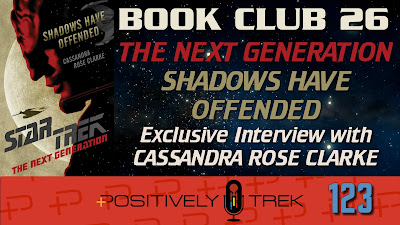Last night I finished reading Honky in the House: Writing & Producing The Jeffersons by Jay Moriarty (2019).
Now, I read a lot of books about the making of classic television series. It’s one of my go-go subjects as I love reading all of the behind the scenes stuff like the development of a series, the writing, the casting, the shooting of the episodes, etc.
That said, I have to say that Honky in the House is one of the best of these types of books that I’ve read. The best of these bring up warm memories of when you first watched an old tv series (“I remember that episode!”) and make you want to watch that series again. Moriarty’s book very much does this for “The Jeffersons”.
For those unfamiliar with “The Jeffersons” (1975-1985), it was a spin-off of another classic series, “All in the Family” (1971-1979), both overseen by Norman Lear.
Starting with the second season, Moriarty and his writing partner, Mike Milligan, joined the writing staff on “The Jeffersons”. Prior to that, they had written episodes of “Good Times” and “Maude” (two other Norman Lear series), “That’s My Mama”, “Joe and Sons”, and “Chico and the Man”.
Moriarty spends the opening chapters of Honky in the House quickly getting you through his early years (how he ended up wanting to be a television writer), getting married and moving to California to pursue that dream, submitting a story pitch to “All in the Family” for an episode called “The Draft Dodger” (which went unanswered at the time but which would be made into one of the all time most memorable episodes of that series many years later after Moriarty and Milligan were on “The Jeffersons”), meeting and forming his partnership with Milligan, and their experiences writing the episodes for the series I mentioned above.
However, all of that is covered in just a small number of chapters, after which pretty much the entire rest of the book is either about their time working on “The Jeffersons” or a few side projects they worked on at the same time.
Moriarty and Milligan quickly rose through the ranks at “The Jeffersons”, starting out as “Program Consultants”/“Assistant Story Editors”) for season two (their first season on the series), “Story Editors” for seasons three and four, “Producers” for season five, and “Executive Producers” for seasons six and seven.
Not bad for a couple white television comedy writers on what became a number one hit “black” television situation comedy series. Moriarty addresses this several times, what it was like being asked over and over how a white man can write for black characters. He goes into his philosophy about this and also how his goal was always for his scripts (and the ones he oversaw the development of) to #1, “be funny”, and #2, to have something significant to say about life, society, race, serious issues, family, etc. But he would shelve an “issue” story idea until he and his partner could come up with a sound story to go with it. (“How do we make this funny? How do we explain how this would naturally work within the confines of our series and the lives of characters that we’ve already established?”)
Moriarty goes pretty much chronologically through his years on “The Jeffersons”, season by season, and intersperses where appropriate his working relationships with Norman Lear, the other producers, and the cast (Sherman “George Jefferson” Hemsley, Isabel “Louise ‘Weezie’ Jefferson” Sanford, Marla “Florence” Gibbs, etc.).
He doesn’t try to go into every single episode (this isn’t an “episode guide”). He brings up the ones that meant the most to him personally and also gives his thoughts on a handful of others for each season. (I won’t try to go into any specific ones here but, again, I was constantly going, “Oh yeah, I remember that one!” over and over again.)
The book ends after Moriarty and Milligan completed their six year run on “The Jeffersons” (and also their overseeing the very short lived “Jeffersons” spin-off series, “Checking In”, starring Marla Gibbs’ Florence character which was shot after the completion of “The Jeffersons” season seven in 1981; four episodes of “Checking In” were written and shot very quickly, much faster than Moriarty and Milligan liked, due to an impending writer’s strike; the four episodes were aired, the series was cancelled, and Marla Gibbs returned to “The Jeffersons”, as she had wisely had put in her contract for the spin-off series).
Moriarty and Milligan had already decided to leave “The Jeffersons” at the end of season seven, which they did, to accept an offer to develop new series ideas at another network. Honky in the House, being a book primarily about their time on “The Jeffersons”, ends here though and does not follow their careers beyond that. Perhaps Moriarty has a second book in mind.
I highly highly highly recommend Honky in the House: Writing & Producing The Jeffersons to anyone who have ever enjoyed watching that classic television series (which at the time was the longest running American television situation comedy series: eleven seasons, 253 episodes). I also recommend it for people who just like to read in general about television shows were made in the 1970s and early 80s. (I gave this five out of five stars on GoodReads.)


